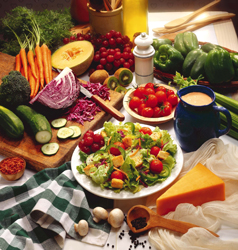Food and nutrition in the 21st century
As consumers become better informed and food trends evolve rapidly, the EU is looking at ways to improve the agri-food industry. It is launching different initiatives to ensure the availability of better, safer and more nutritious food, as well as advance the sustainability of the food chain. In this spirit, the EU-funded project 'Food and nutrition in the 21st century' (FOODCONFERENCE) launched a conference to gather key stakeholders in the agri-food sector and advance these pivotal topics. The conference investigated the agri-food industry's challenges and mapped trends in food and nutrition research and technology. Specifically, it discussed the technological, environmental, economic and social challenges in the sector, proposing approaches to address emerging issues and outlining recommendations to upgrade related research and innovation policies. Having taken place in Poland in September 2011, the event gathered 500 participants from across Europe, in addition to 900 people who followed the debate online. Numerous observations emerged from the conference that will help shape the agri-food industry and its policies. For example, the conference noted that high economic growth in developing countries such as China and India will drive the global food market. It underlined how higher incomes and shifts from rural to urban areas will increase demand for quality food, moving from cereals to fruits, vegetables, meat, dairy, fish and processed foods. Developed countries, on the other hand, are set to focus on obesity and diet-related disorders, increasing the need for personalised diets. These revealing conclusions and related papers have been published on the project's website (http://foodconference2011.inhort.pl(opens in new window)). No doubt the European agri-food sector will play an important part in the European bioeconomy, supported by the latest findings and conclusions of important initiatives such as FOODCONFERENCE. The sector's future will also benefit from new technologies such as biotechnology, nanotechnology, nutrigenomics and nutrigenetics, which will maintain its competitiveness and innovativeness.







